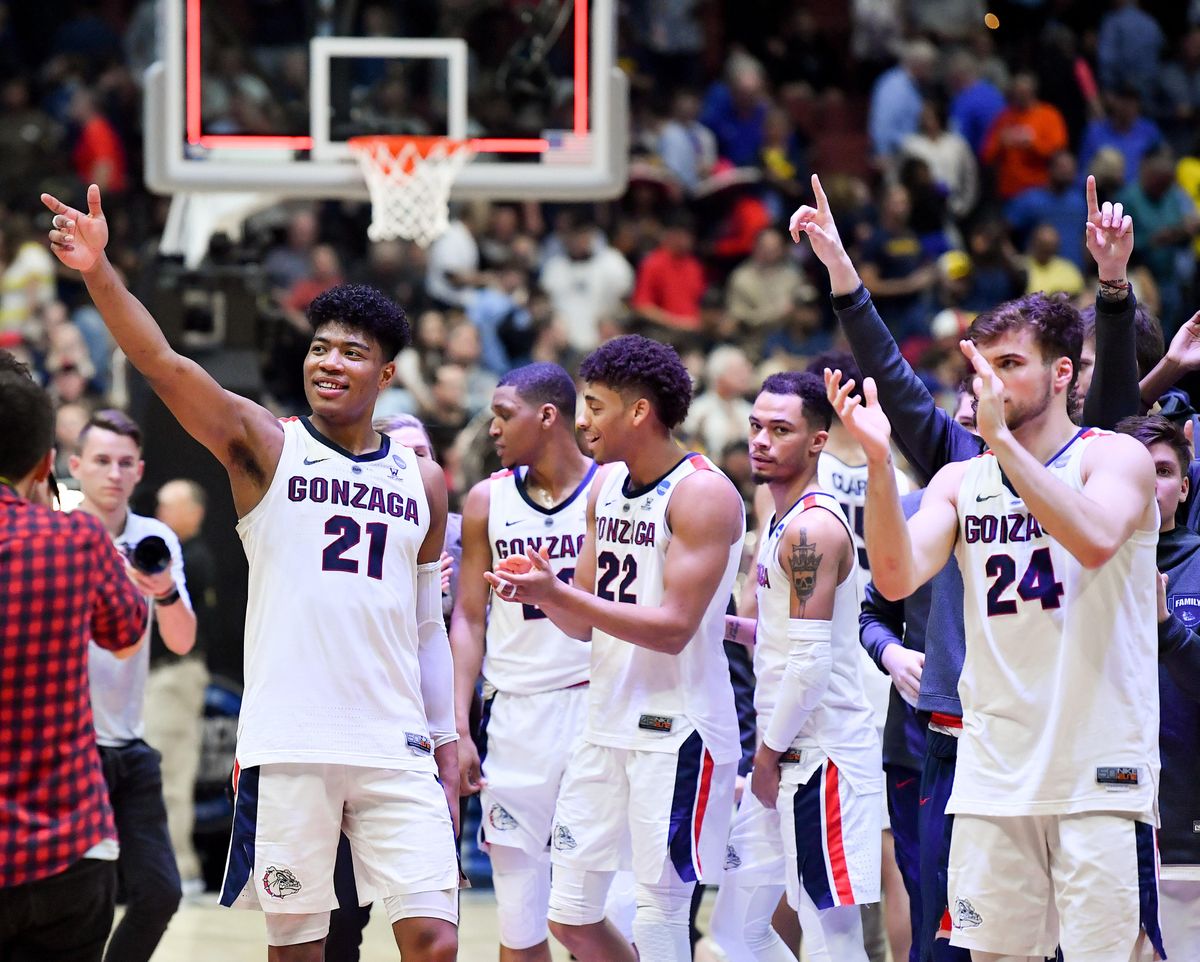Gonzaga wins ‘war’ on the glass against taller, bigger Florida State

ANAHEIM, Calif. – Everything suggested Gonzaga would probably finish with a better 3-point clip than Florida State, that it would beat the Seminoles in transition points and furnish a better assist-to-turnover ratio.
If the Bulldogs had to forfeit the rebounding column to Leonard Hamilton’s giants Thursday night, they hoped to do enough else right to win a Sweet 16 rematch at the Honda Center.
But GU decided it was better to not leave it to chance, and the Zags’ victory on the glass was critical to the one on the scoreboard in Anaheim, where the higher seed moved on to the Elite Eight with a 72-58 win.
“It just took an edge and an effort that we didn’t have all year long,” Gonzaga sophomore forward Corey Kispert said. “We knew from the very beginning that it was going to be a war on the glass and in order to beat them, we had to beat them on the glass. And that’s kind of the message going into the game today, was we had to be the aggressor, and it shows in the rebounding margin.”
The Bulldogs finished with 45 rebounds, 13 on the offensive glass. The Seminoles had 36 total, seven offensive.
Those margins probably didn’t go in with great betting odds. FSU’s starting lineup featured 7-foot-4 Christ Koumadje – the tallest remaining player in the NCAA Tournament – and the Seminoles brought another force inside, 6-10 Mfiondu Kabengele, off the bench to play 26 minutes. Four other FSU players stand at least 6-6 and there isn’t one shorter than 6-4.
“Not only are they tall, but they’re men in there,” Kispert said. “Big, strong dudes.”
But the Zags were getting the same compliment from the Seminoles.
“They have big guys inside with Rui (Hachimura) and Brandon Clarke and even (Killian) Tillie,” FSU’s RaiQuan Gray said. “Those guys are all close to 7-foot, so they take up a lot of space with their wingspan, and it’s kind of hard to fight that, especially when we’re not at full strength.”
Clarke typically tops the rebounding column for the Zags. That was the case Thursday, although it took 10 boards in the second half for the 6-8 forward to record his game-high 12, including three on the offensive glass.
Nobody else had more than five rebounds for GU, but every player had at least two. Kispert and Tillie each had five, while Hachimura and point guard Josh Perkins chipped in four each.
The Zags weren’t about to grow 2 inches before tipoff, so they talked about playing with more tenacity and brute force – things that were lacking when they lost to the Seminoles 75-60 on this stage a year ago.
“Just being physical with them, because last year we kind of feel like we got punked on the defensive end – on the rebounding end, too,” Clarke said. “So we just really tried to not let them just be more physical than us, so that’s why we kind of ended up getting more rebounds than them.”
“We all watched the film of the (2018) game and we all know that we kind of tiptoed into things and didn’t really give them our best shot physically – and we knew we had to make that change today.” Kispert said.
Limiting FSU on the offensive glass was also key. The Seminoles rebounded just 18 percent of their missed shots, and their seven offensive boards were their fewest since a Feb. 23 game at North Carolina.
“I think they got less than 20 percent of their offensive rebounds, which against a team like that is huge,” GU assistant Tommy Lloyd said. “Especially when you’re in switching, and different matchups, and you have littles marking on bigs.”
The Zags outmatched most of their West Coast Conference foes on the glass this season, but they weren’t as rugged against Atlantic Coast Conference opponents who compared better to FSU. North Carolina dominated GU on the boards (42-21), as did Duke (44-35).
“There’s some technique to it, but a lot of it is just grit and wherewithal and going to get it,” Lloyd said. “(It’s) something we tried to address (with) our team all year – against North Carolina and Tennessee, we got pounded on the glass.
“Against Duke at the end, I think they had 20 offensive rebounds. So it’s something we knew is kind of an Achilles’ heel of ours, and I think our guys have done a great job responding.”
